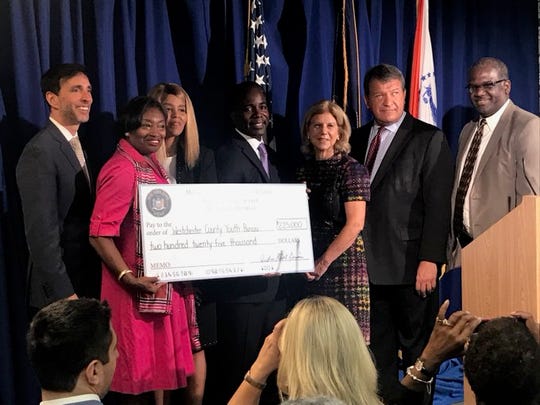Let’s Talk about Sex… In Westchester

Five cities in Westchester County will be given funding to go towards a program with the purpose of educating young people who seem to show at-risk behavior.
$225,000 will go through Westchester County’s Youth Bureau and given out to Mount Vernon, New Rochelle, Peekskill, White Plains, and Yonkers to dive further into the Sexual Risk Avoidance Education Program.
The Sexual Risk Avoidance Education Program is run by the Family & Youth Services Bureau, whose mission is to support the organizations and communities that work every day to put an end to youth homelessness, adolescent pregnancy and domestic violence.
The vision of the FYSB is to support the organizations and communities that work every day to put an end to youth homelessness, adolescent pregnancy and domestic violence.
In 2018, there was $12.8 million awarded to 30 projects run by the Family & Youth Services Bureau.
It accounts for nearly half of all sexually transmitted diseases for by young people, ranging from the ages of 15-24, and the United States pregnancy rate for the youth, ages 12-19 years old, is the highest in the entire world.
Mercy College students have even struggled themselves with a proper sexual education and were not taught the things that people are being taught with the Sexual Risk Avoidance Education Program.
“I don’t think I received a proper sexual education, because when I had health class it was more about drinking and drugs, and stuff you should know about your body… It was never really about sex. We talked about it once, probably, about the normal STD’s, but never how you can get them sexually… It was more like, these are STD’s, don’t get them. They didn’t state treatments or anything, they were like, this is a thing about having sex without protection, you can get these STD’s,” said Mercy College Junior, Dawn Sanchez, age 20, when asked about the sexual education she received while she was in school.
After being funded for one year, the Sexual Risk Avoidance Education Program has gotten funding for another, to continue on in its pursuit of reducing risky behaviors in teenagers, meaning drugs and alcohol, practicing unsafe sex and being apart of harmful relationships.
Senate Majority Leader Andrea Stewart-Cousins has said, “We’ve got to look at our youth, and we’ve got to make sure that not only their lives are better now, but that we’re preparing them for the future. Their education is essential, and that is what the grant is about.”
Some objectives of the program is to provide medically accurate information to teenagers, teach risk avoidance skills through methods that do not normalize teen sexual activity and to provide information in a manner that prevents negative unintended consequences.
According to the Centers for Disease Control and Prevention, sexually transmitted diseases (STDs) affect individuals of all ages, and STDs take an even heavier toll on younger generations. The CDC estimates that youth ages 15-24 make up just over 25 percent of the sexually active population, but make up half of the 20 million new sexually transmitted infections that occur in the United States each year.
The CDC also reports that those who initiate sex early in their youth are at higher risk for STDs, along with adolescents living in detention facilities, those inject drugs, those attending STD clinics, and adolescent men who have sex with men. Issues that play a part in this increased risk of youth include having multiple sexual partners at the same time, having sex with many partners in a limited amount of time and failing to use barrier protection, such as condoms.
The Sexual Risk Avoidance Education Program will run in the five Westchester County Cities to help their youth create and maintain healthy lifestyles into their adult years.
While the Sexual Risk Avoidance Education Program is being used to inform at risk youth about how to practice safe sex, and how to avoid contracting STDs, they also inform that abstinence is the only sure-fire way to not get any disease from sex.
But is abstinence realistic in this day? Some people were not even sure what abstinence is, and when being asked this question, needed that clarification.
“Everyone thinks sex is the norm, and people who don’t are considered prudes and whatnot. They’re considered abnormal, and they’re judged for it. Sex is not a necessity in life, so if you don’t want to do it, don’t do it.” Mercy College sophomore Anthony Ramos, age 18, replied after asking if abstinence is less realistic due to the way society is now.
“I feel like people would judge you, and view you differently because they’re doing that and it’s just a little different. Before, people would have a lot of sex and people would slut shame and stuff, but now it’s different and if you’re not like that, you’re weird, you’re different,” was the outlook of Allison Romero, age 19, when she was asked about what she thought about abstinence.
Perhaps abstinence is the safest way to not contract any sexually transmitted diseases, but it may also be one of the most unrealistic ways, which is one reason the Sexual Risk Avoidance Education Program is teaching about safe sex to the youth of Westchester County.

Jillian Simmons is a junior studying Television and Radio Broadcasting, with a secondary concentration in journalism.
She has a passion for video editing...







